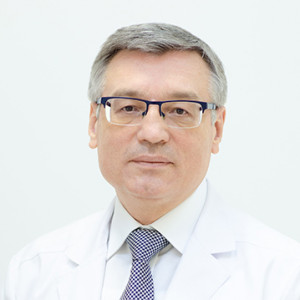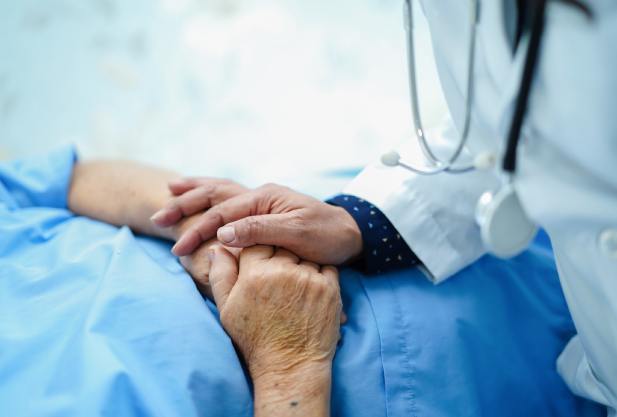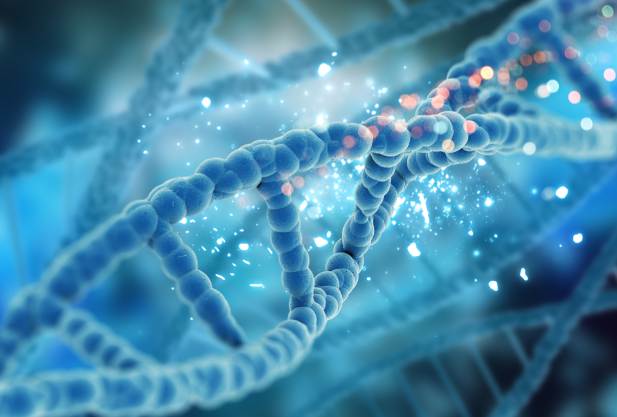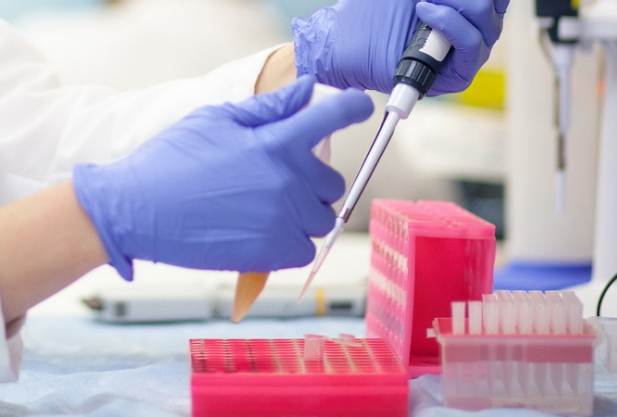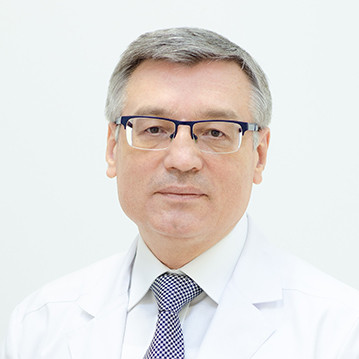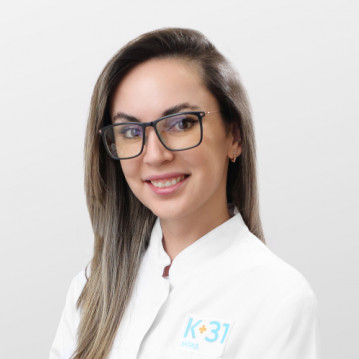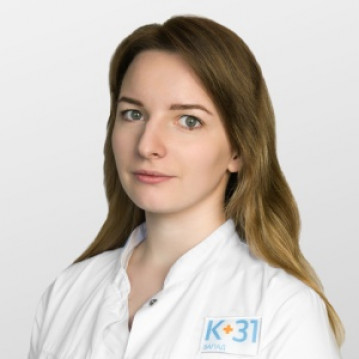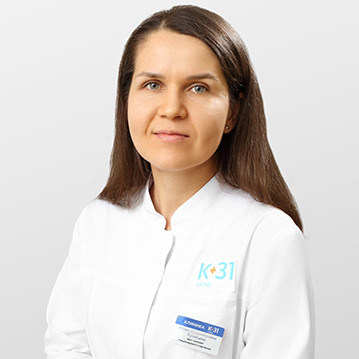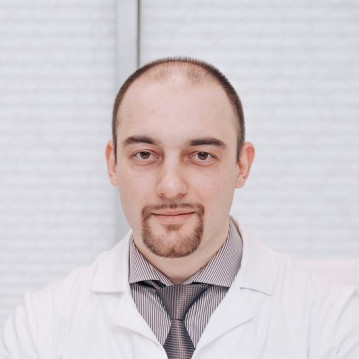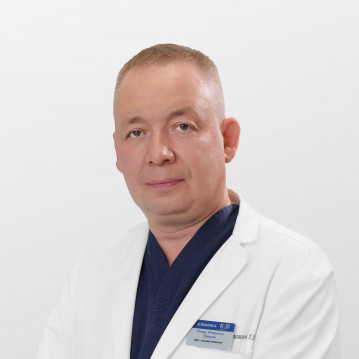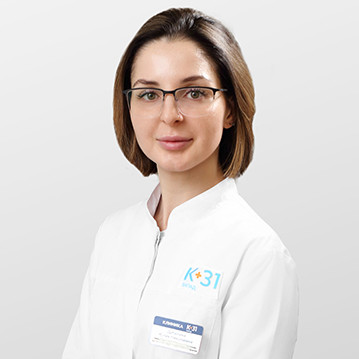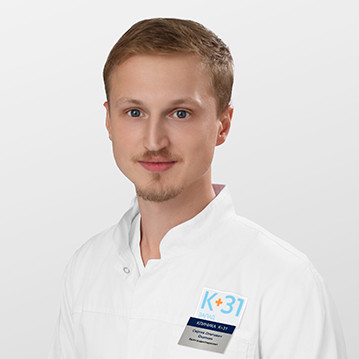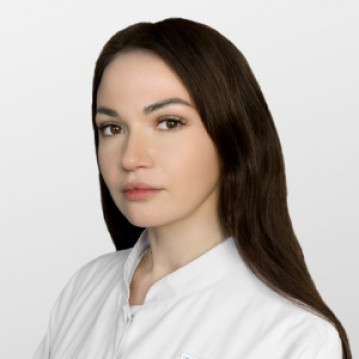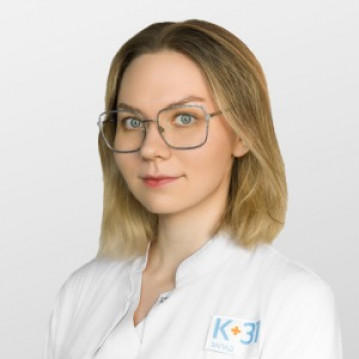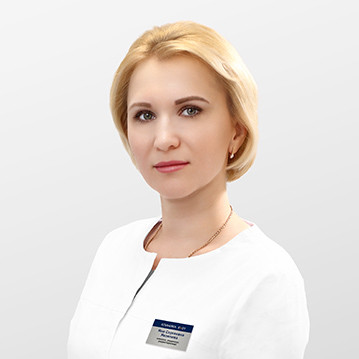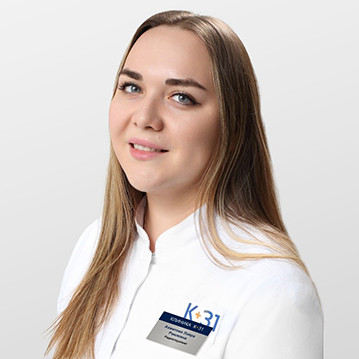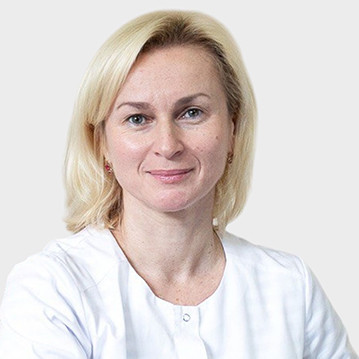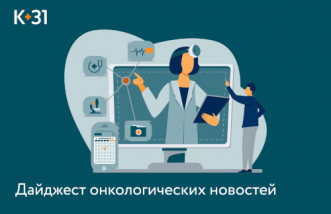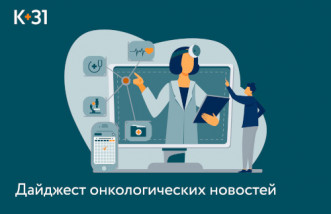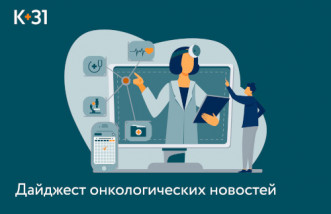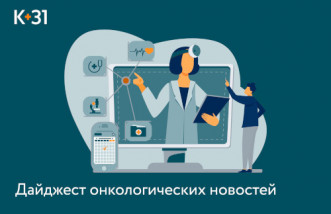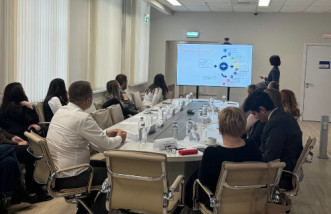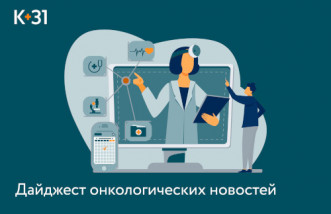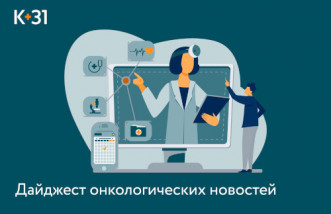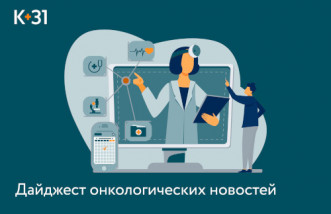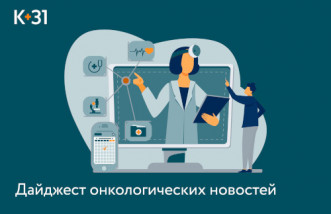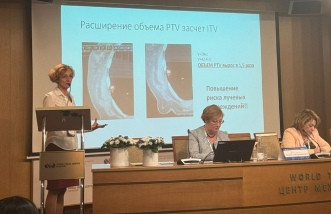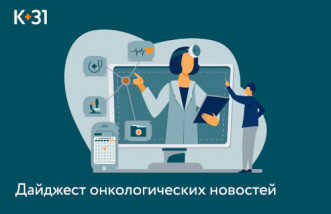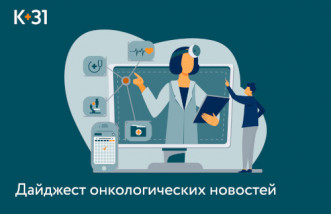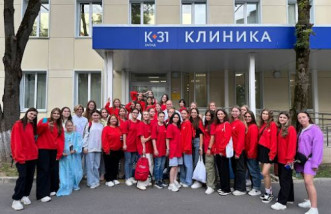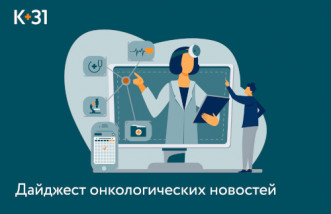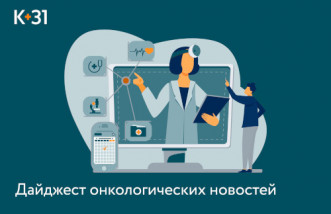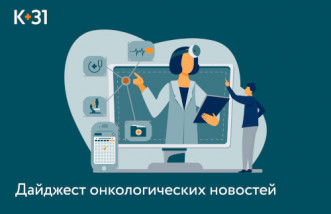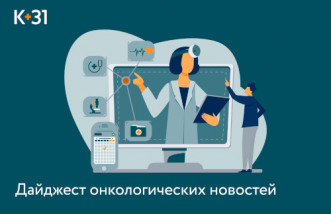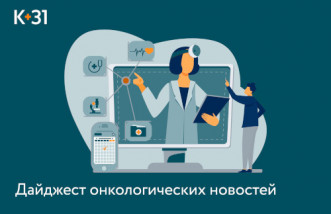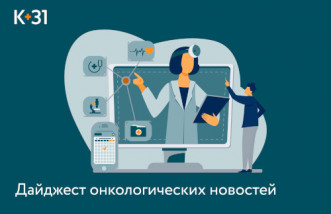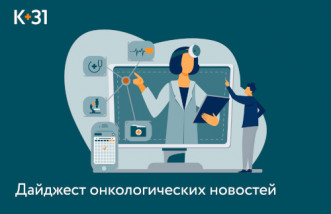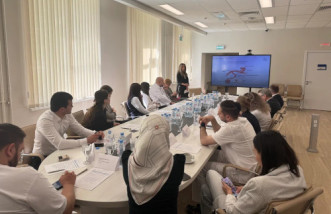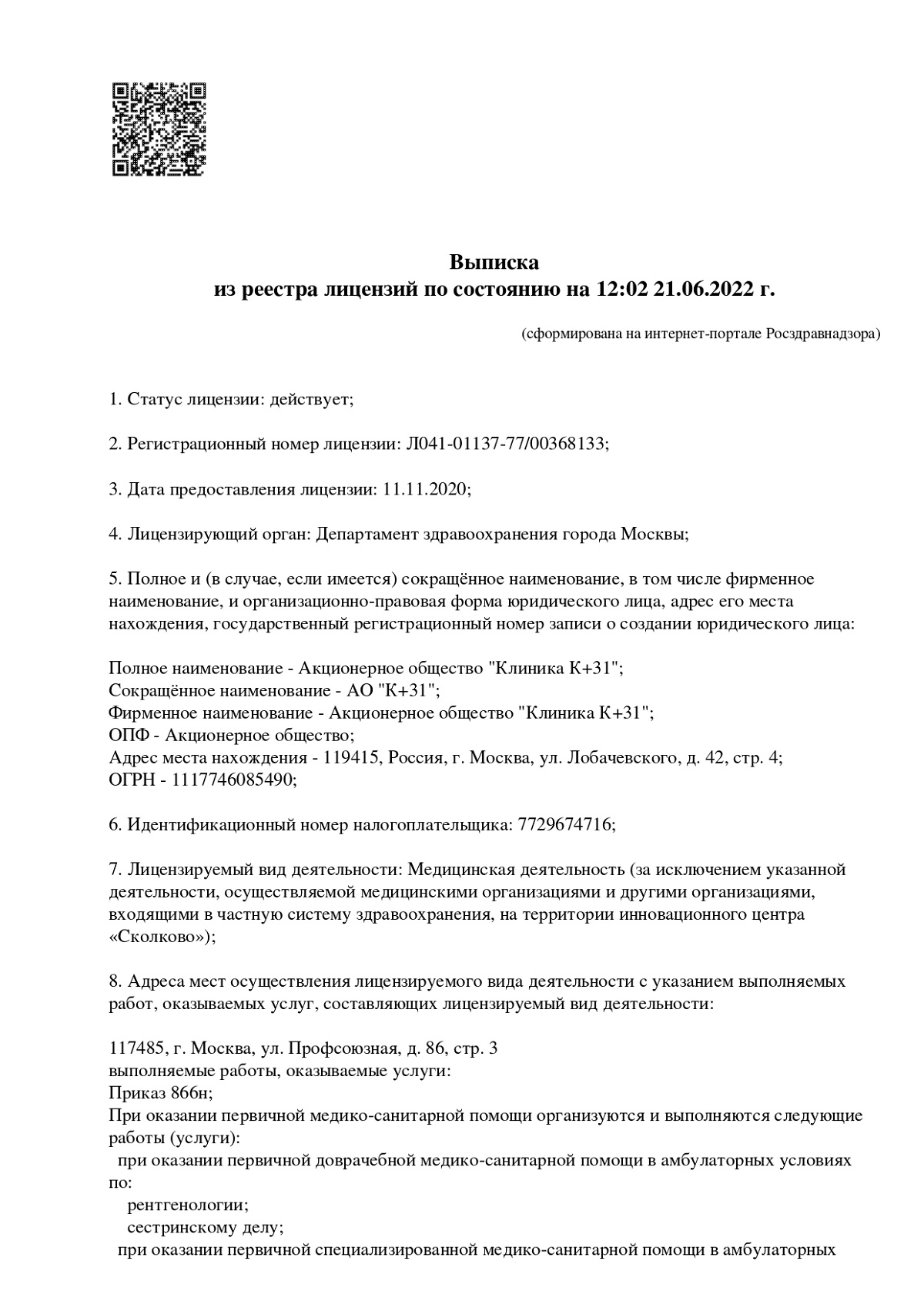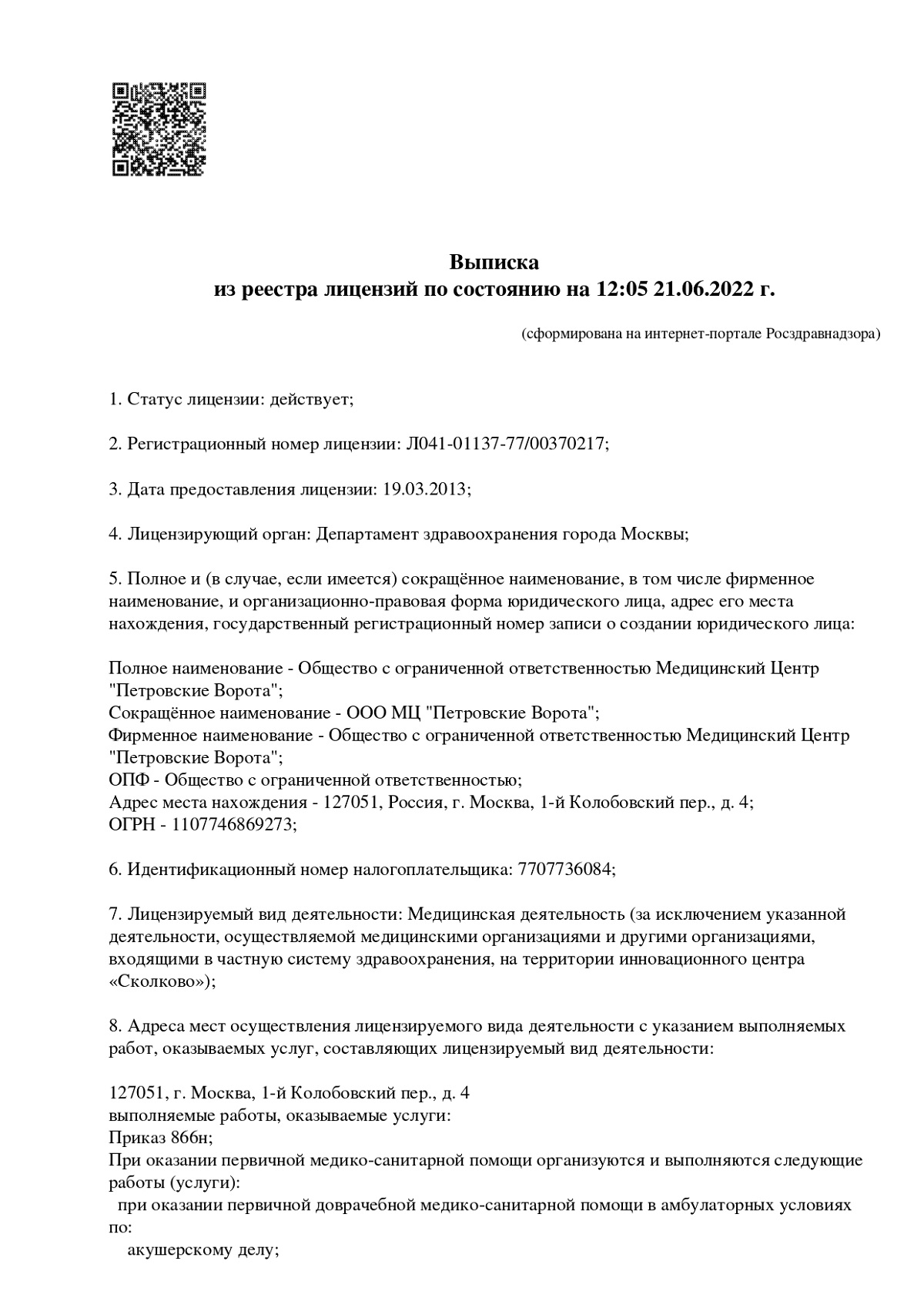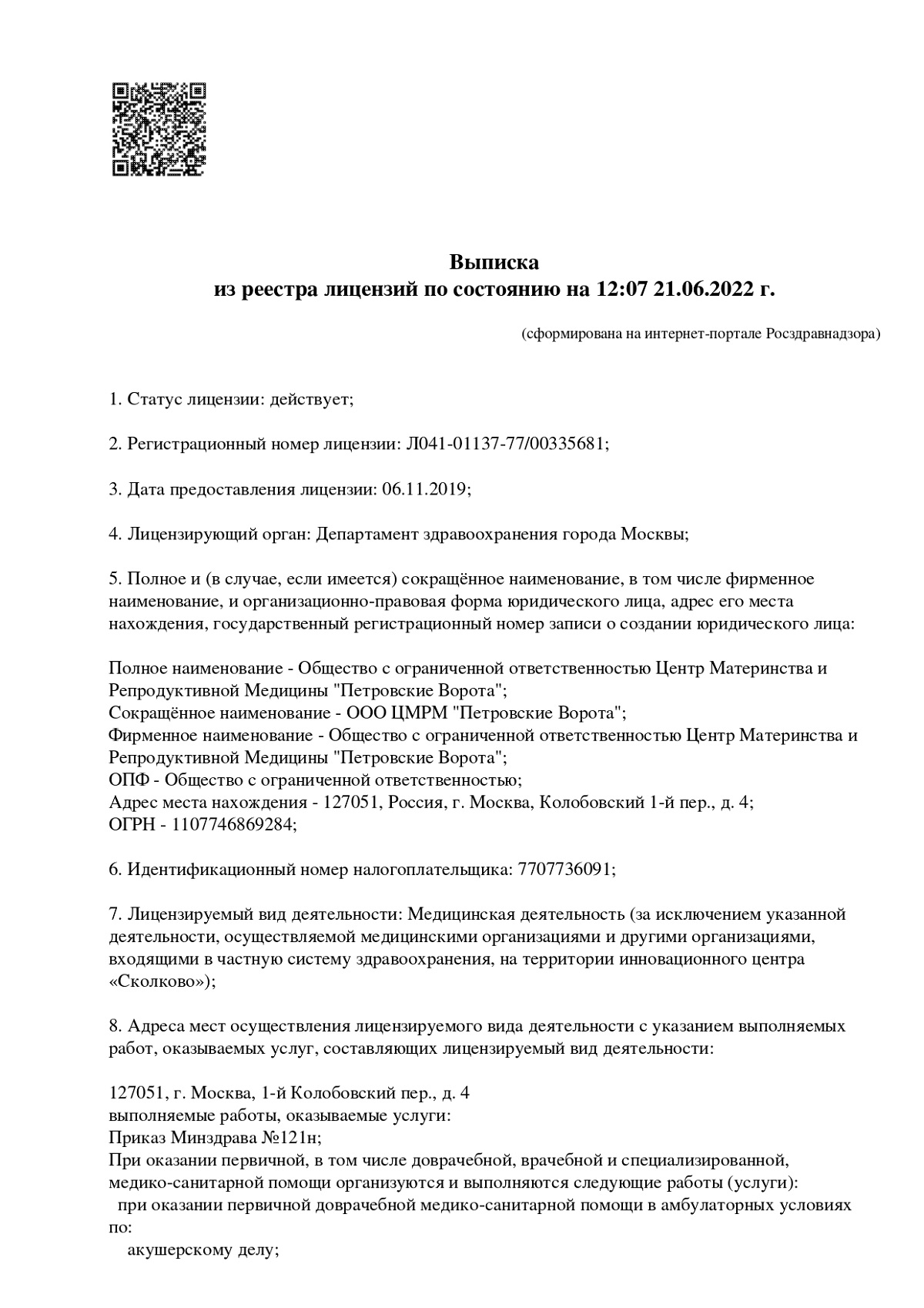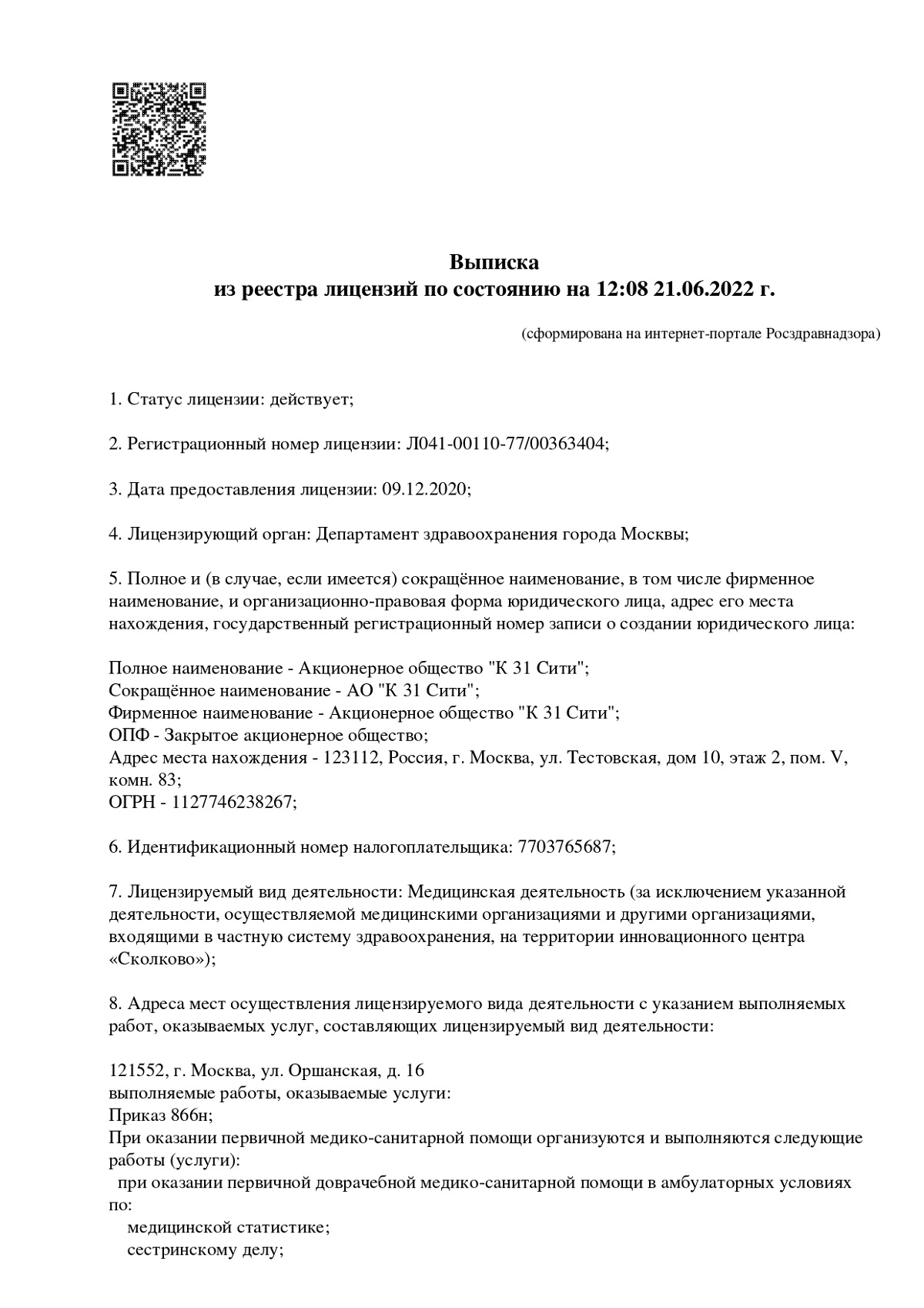- Surgical treatment
- Radiation therapy
- Radiotherapy
- Drug therapy
General directions
Taking into account its comprehensive capabilities, Clinic K+31 West provides not only specialized oncological treatment, but also a wide range of medical care for patients in the following areas:
We treat patients from all regions of Russia* under compulsory medical insurance in comfort and according to the standards of a premium-level commercial clinic!
At the K+31 West Clinic, patients can receive high-quality oncology treatment under the compulsory medical insurance policy, while experiencing comfort and a level of service that meets the standards of premium commercial clinics.
Advantages:
- A full range of necessary drugs is always available, which guarantees the continuity and effectiveness of the treatment process
- A highly qualified team of international-level doctors
- The most modern technological base: linear accelerators, X-ray therapy devices
- Comfortable hospital
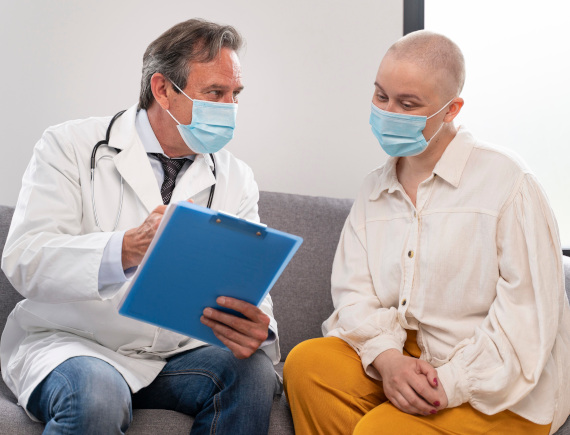
Leading doctors
Unique competencies of the Oncology Center K+31 West
Providing multicomponent accompanying therapy to patients with cancer to improve quality and life expectancy, and minimizing the adverse effects of antitumor treatment.
This goal is achieved through the provision of a set of medical benefits (medicinal and non-medicinal) patients at all stages of medical care: before the start of treatment (as pre-rehabilitation), during antitumor treatment and at various periods of life after the end of antitumor treatment.
The division of the Center's activities into areas is to a certain extent arbitrary and reflects the existing medical specialization. Undoubtedly, competencies developed in various areas are applicable in the treatment of a particular patient. Eg, When carrying out chemotherapy treatment for an elderly patient, it is expected that cardio-oncological or neuro-oncological approaches and restoration of the microbiome, as well as the elimination of various adverse effects of chemotherapy, which can be equally applicable in the treatment of young patients.


This award is given to clinics with the highest ratings according to user ratings, a large number of requests from this site, and in the absence of critical violations.

This award is given to clinics with the highest ratings according to user ratings. It means that the place is known, loved, and definitely worth visiting.

The ProDoctors portal collected 500 thousand reviews, compiled a rating of doctors based on them and awarded the best. We are proud that our doctors are among those awarded.
Unique programs of the oncology center K+31 West
Helpful information
Chemotherapy treatment is prescribed for the diagnosis of many pathologies, including tumors of the breast, skin, and soft tissues. Our center provides treatment for all types of cancer at different stages of the disease.
Oncological council
Among the many options for treatment strategy - combinations of radiation therapy, surgical treatment or chemotherapy - the right choice is necessary, which cannot always be made by one specialist, which is why a multidisciplinary, or team, approach to the treatment of oncological diseases is correct in modern practice. For this purpose, the K+31 West clinic has implemented the possibility of holding an oncology consultation, where, during a collective discussion by doctors of various specialties, the established diagnosis is clarified or corrected and the most effective individual treatment plan is drawn up.
The council usually includes:
- Oncologist-chemotherapist.
- Surgeon
- Radiation therapist.
- Diagnostic specialist.
Specialists of related specialties may be involved in the consultation.
Drug therapy
In the clinic, targeted, immuno- and chemotherapy are carried out for patients with tumors of various locations:
- Breast cancer.
- Lung cancer.
- Ovarian, endometrial, cervical cancer.
- Cancer of the stomach and esophagus, pancreas.
- Colon and rectal cancer.
- Hepatocellular cancer.
- Bladder cancer.
- Prostate cancer.
- Brain tumors.
Chemotherapy is carried out according to regulated protocols in accordance with international recommendations. Each patient is given a personalized treatment regimen, taking into account the individual characteristics of the patient and the cancer. Chemotherapy is also given to patients who come from other countries with an already prescribed treatment regimen. This treatment can be carried out in a hospital setting.
If necessary, in the case of a severe patient's condition, detoxification treatment is first carried out before chemotherapy to improve his condition.
Preventive diagnostics
The Oncology Department also pays special attention to preventive work, the essence of which is to identify benign, potentially dangerous, precancerous diseases, as well as malignant tumors in those patients of the clinic who are being treated in other departments or undergoing consultations with other specialists.
This is realized thanks to the close cooperation of oncologists with specialists of other profiles at K+31 clinics.
Radiation therapy
The K+31 West clinic provides treatment under compulsory medical insurance in the following areas: radiation therapy, chemoradiotherapy for all nosologies without restrictions, according to form 057/u. You can sign up for the clinic using compulsory medical insurance from all regions, including Moscow, except Dagestan, Tambov, Volgograd and the Moscow region.
Treatment of diseases
Thyroid diseases
Oncology of the anusMake an appointment at a convenient time on the nearest date
Price
News
Innovative equipment
Varian Halcyon 2.0
Since 2021, an innovative Varian Halcyon 2.0 linear accelerator has been installed and put into operation at the K + 31 West clinic.
Intensity modulated irradiation technology (IMRT and VMAT) is used to treat patients with maximum efficiency and minimize the dose load on organs at risk and normal tissues adjacent to the tumor.
Due to the design of the device, which has a unique architecture for linear accelerators with an innovative circular gantry design, it became possible to treat patients 3-4 times faster, providing even more safety during the treatment session, as well as avoiding the problem of queues for treatment.
Reduced noise levels, a low, smoothly moving treatment table, and soft built-in lighting enhance the positive impact on the patient.
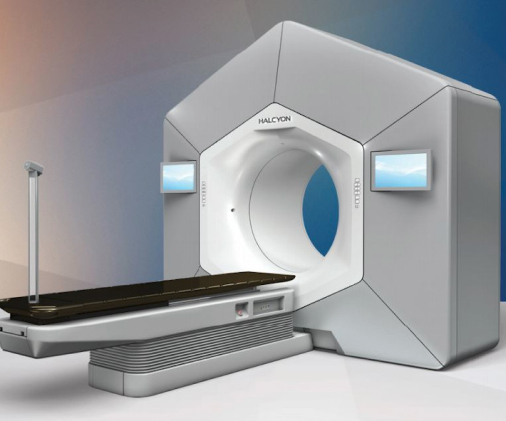
Varian TrueBeam STX
The Varian TrueBeam STX linear accelerator is state-of-the-art equipment that allows you to perform all the latest radiotherapy and radiosurgical cancer treatments on a single device. The radiation source generated by the linear accelerator is located outside the patient's body, so this type of treatment is called remote (external) radiation therapy.
A precise high dose of radiation is delivered precisely in a short time. The device makes it possible to generate radiation, which, when the beams are distributed, will exactly correspond to the given volume - the shape of the tumor. This allows selective irradiation of malignant foci, sparing treatment of vital organs.
The linear accelerator operates in two modes: generation of photon radiation or extraction of an electron beam.
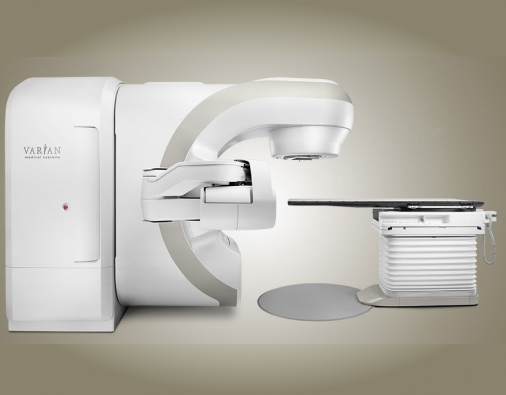
Xstrahl 200
The Xstrahl 200 X-ray therapy device is a universal system for the treatment of oncological diseases, including at the palliative stage, providing excellent clinical results. The device combines the possibilities of surface and orthovoltage therapy. It has a built-in fractionated dose control system to ensure complete patient safety.
Irradiation of the affected area using Xstrahl 200 ensures that there are no side effects on the affected and adjacent healthy tissues.
Statistics from leading oncology centers and institutes show that today the Xstrahl 200 system is optimal in the process of successful treatment of superficial skin cancer.
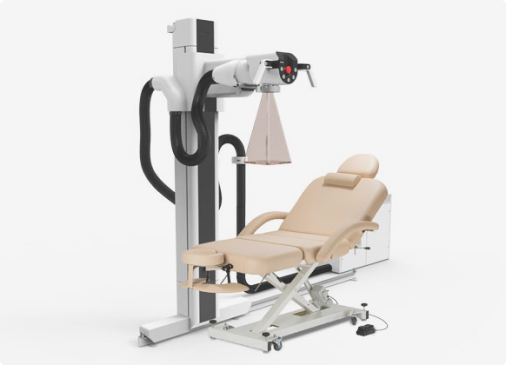
Stationary

Modern equipment and minimally invasive techniques allow doctors to use epidural anesthesia more often, which significantly less affects the functioning of the heart, kidneys and liver than general anesthesia. This is especially true when helping people of age.
Many patients, especially older ones, have chronic diseases of other organs and systems that are contraindications to general anesthesia. Epidural anesthesia removes the restrictions on surgical treatment in such patients.
During the postoperative period, the K + 31 clinic accommodates its patients in comfortable rooms designed for one or two people.
Stays in the wards of the day and round-the-clock hospital include:
- Constant supervision of duty personnel
- Regular doctor's rounds
- Four meals a day, taking into account the characteristics of the condition
- Ability to hire a babysitter
- Staying with a relative
All rooms are equipped with an alarm button, by pressing which you can instantly call the specialist on duty. Our qualified doctors, attentive and caring staff will help you recover as soon as possible.

Mechanism of cancer occurrence
The basis of the mechanism is a violation of the regulation of cell growth in tissues. Normally, cells in the body are renewed, but when genes are mutated, as well as when exposed to adverse external factors, cells with damaged DNA are formed. They multiply rapidly, causing the appearance of a neoplasm, for which the term malignant is used. tumor.
They are distinguished from benign tumors by 3 features:
- Infinite, uncontrollable growth
- Injury to organs and tissues located near the site of primary localization
- Metastasis, in which cancer cells migrate through the blood or lymph to different parts of the body.
Timely access to a doctor and receiving high-quality oncological care is the main condition for stopping the development of a cancerous tumor.
Causes of cancer
There are many reasons for the appearance of malignant neoplasms, including:
Improper nutrition.
A large number of carcinogens enter the body, promoting cell mutation. An unbalanced diet with a predominance of one or another group of nutrients has an adverse effect on health. For example, excessive protein consumption can cause colorectal cancer; a large amount of animal fat leads to the degeneration of pancreatic cells and, as a result, the development of oncology.
Aging.
In which the body's defense mechanisms are weakened, helping to destroy mutated cells to their rapid reproduction.
Viruses.
When a person becomes infected with the oncogenic papillomavirus type, there is a risk of developing cervical cancer (one of the most frequently diagnosed types in gynecology). Hepatitis B, C can cause cancer liver, Epstein-Barr virus leads to the development of lymphoma, etc.
Genetic predisposition or hereditary forms of oncology.
The chance of getting cancer is 5-10%. For patients who have had cancer in the family, this figure increases to 20-30% (genetic predisposition). Hereditary cancer is a mutation of individual genes, for example, BRCA. This is a gene that increases the likelihood of developing diseases such as breast or ovarian cancer by 80%.
Bad habits, including smoking, excessive drinking or drug addiction.
For example, substances from tobacco smoke have a negative effect not only on the lungs, but also on ENT organs, digestive system. Drug addiction disrupts the immune system. They lead to lymphomas, sarcomas, leukemias.
Precancerous diseases.
For example, adenomatous intestinal polyps can degenerate into malignant cells and lead to colorectal cancer, untreated endometriosis provokes endometrial cancer, etc. Against this background, preventive screening examination becomes important. It helps to identify the disease and select adequate treatment that will prevent the development of cancer. You can make an appointment with a doctor for examination by calling the contact phone number listed on the website.
Exposure to ionizing radiation, in particular ultraviolet (may cause skin cancer).
This is especially true for people living in areas with unfavorable background radiation. Radiation therapy increases the likelihood of secondary tumors.
Bad ecology.
Soot, exhaust gases and other substances emitted into the atmosphere as a result of the work of various industries industry, increase the risk of mutations in body cells.

Types of cancer
Scientists know many types of cancer. The name of the site is often used to refer to the primary tumor. localization, such as lung cancer. Contrary to popular belief, not every oncology can be called malignant tumor. In a professional setting, physicians use this term for carcinomas, i.e. tumors from epithelial tissues. Neoplasms of a malignant type from other tissues - sarcomas. Origin distinguish the following types of cancer:
-
Solid.
Appear in organs and do not contain liquid components (carcinomas and sarcomas). - Hematological.
Formed in the cells of the blood and lymphatic system (lymphomas, leukemias).
For early detection of pathology, tumor differentiation and monitoring the effectiveness of treatment, specialists at the K+31 clinic use functional radiation diagnostics. It includes radiography, computed tomography (CT), magnetic resonance imaging (MRI), ultrasound examination (US), radionuclide diagnostics, interventional radiology.
How cancer spreads
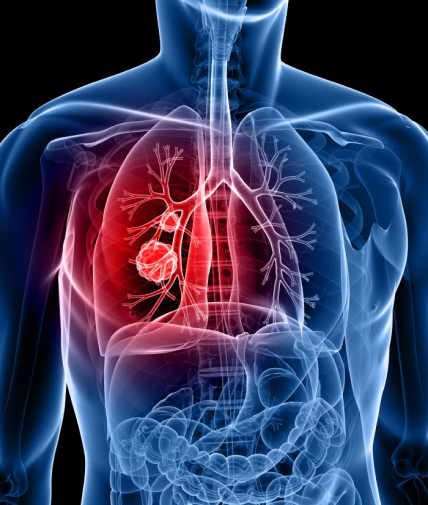
The altered cells, as they grow, penetrate the lymphatic or blood vessels, as a result of which they end up in different parts of the body, where they continue to grow and form new tumors. The process of metastasis is not typical for every type of disease.
Secondary tumors are characterized by a histological picture and molecular genetic abnormalities similar to the primary lesion. This allows oncologists to use identical treatment methods for both the main tumor and metastases. Another mechanism of spread is damage to the tissues surrounding the tumor (most often detected during a biopsy).
There are different ways to classify cancer in oncology. Based on the location of the primary tumor, cancer:
- Skins
- Uterus
- Lungs
- Stomach
- Uterus
- Breast
- Larynx
- Prostate
- The brain or spinal cord
- Intestines
- Kidneys, etc.
- Ovary
There is a histological classification. Each group of tumors is characterized by the presence of different types and types, differing in characteristics, prognosis for healing, etc. For example, carcinomas are classified into many morphological types, including adenocarcinomas or glandular, squamous, basal cell, light cell and others.
Neoplasm of the sarcomoidal type are:
- Affecting bones (hard tissue sarcoma, for example, osteosarcoma, chondrosarcoma, parosteal, etc.).
- Affecting lymph, muscle, fat, blood, or embryonic cells (soft tissue sarcoma, e.g., fibrous histiocytoma, fibrosarcoma, dermatofibrosarcoma, neurogenic, liposarcoma, synovial, lymphangiosarcoma, rhabdomyosarcoma, etc.)
Lymphomas are divided into lymphogranulomatosis and non-Hodgkin's (including diffuse large cell, marginal, anaplastic).
Leukemias are divided into 2 broad categories depending on which cells are affected by the cancer. Isolate myeloid or myelogenous leukemia (a neoplasm in myeloid cells) and lymphocytic leukemia (a tumor developed from lymphoid cells).
The exact type of cancer is determined by the attending physician based on the results of a comprehensive examination of the patient. Meet cases where one person has more different types of cancer. The oncology clinic of the K+31 medical center employs highly qualified specialists who will diagnose using modern equipment and prescribe adequate treatment.
Treatment Methods
The main method of treatment for various types is surgery. During the operation, the doctor can completely remove the organ, surrounding tissues or lymph nodes, or only the primary tumor with metastases (in organ-preserving operations). Whenever possible, oncologist surgeons use laparoscopic methods and robotic technology in their practice, as this helps preserve the organ and minimize damage to healthy tissue. This applies to both the general surgical department and urology oncology. When it is impossible to remove the tumor and metastases 100%, the doctor performs a palliative operation in order to reduce the size, get rid of certain complications, and prolong the patient’s life. For this purpose, therapeutic methods of inhibiting tumor growth are also included in the treatment.
For the treatment of cancer is used:
Radiation therapy.
Its essence lies in ionizing radiation that destroys cancer cells. Distinguishes different types similar therapy, including brachytherapy (irradiation source is introduced into the neoplasm), gamma knife (equipment for the concentration of gamma rays and local impact on the focus) and others.
Chemotherapy.
Before surgery, neoadjuvant is performed, after adjuvant. Chemotherapy can also be the main source of treatment, especially if the operation is impossible or ineffective.
Targeted therapy.
It is a modern method of combating cancer. Special drugs are responsible for the inhibition of target molecules (found in cancer cells and help them multiply). Is different from conventional chemotherapy with a high level of efficacy and safety.
Immunotherapy.
Leading edge in cancer treatment. Based on the use of natural antitumor immunity of the body.
The oncology department of the K+31 medical center is equipped with the most modern equipment. To carry out conservative therapy, we use the latest generation of drugs, and perform minimally invasive surgical operations under the control of high-tech endoscopic equipment. Specialists are always looking for the optimal treatment regimen. All patients, in accordance with the established procedure, receive the necessary documents, for example, a sick leave certificate.
Cancer statistics in Russia
Least of all, doctors encounter cancer in Dagestan (about 153 cases), Chechnya (about 162 cases), the Republic of Tyva (about 193 cases). Calculations are made per 100,000 population.
People with bad habits, as well as those who refuse preventive and screening examinations remain the main risk group.
In Russia, a decrease in the number of oncological diseases is gradually observed. For 2021, a little over 580,000 cancer patients. The prevalence of the problem is uneven. Specialists highlight a number of regions where oncology is most often found:
- Yaroslavl region - 526.3 patients per 100,000 people.
- Sakhalin region - 536.3 cases.
- Nizhny Novgorod region - 521.1 cases.
Being overweight increases the risk of cancer
The link between obesity in adulthood and an increased likelihood of developing cancer was already known, but the risk associated with being overweight during childhood and puberty had not previously been described in detail.







